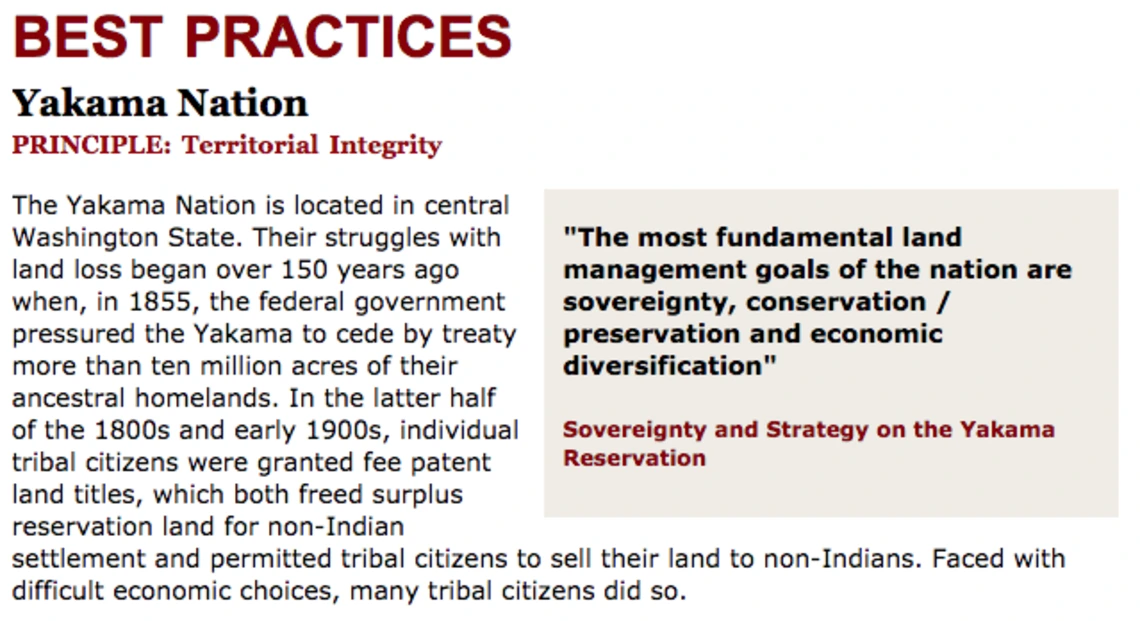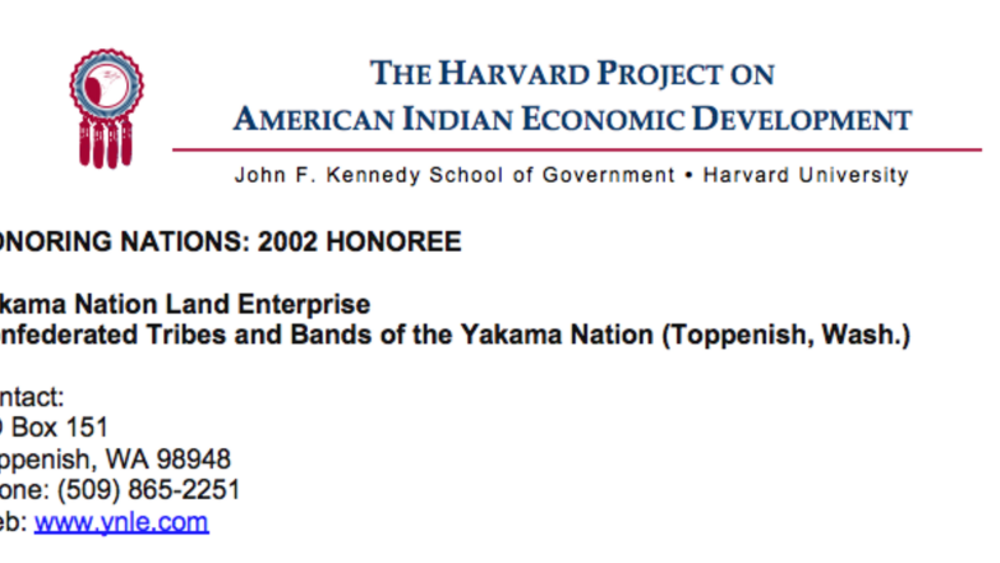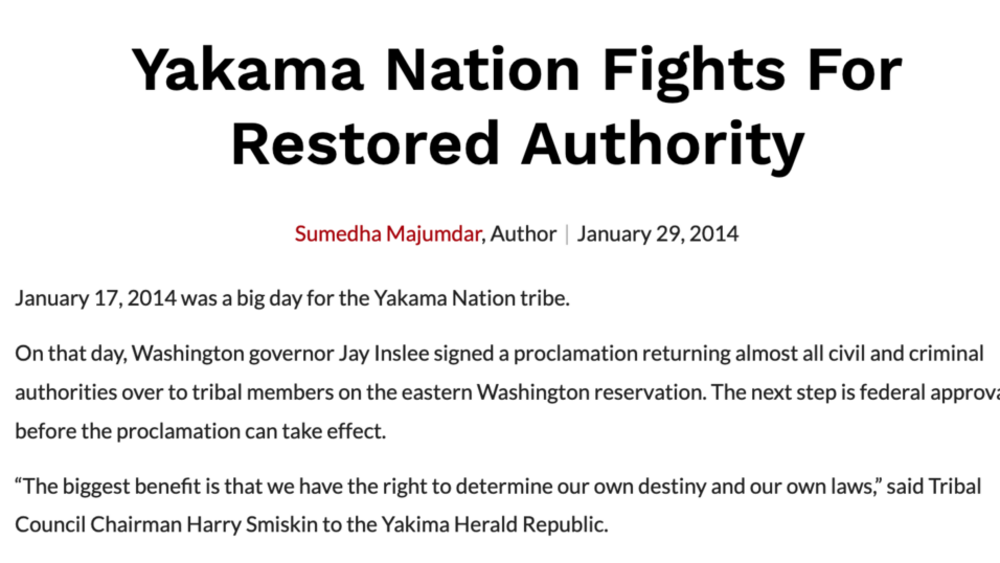The Yakama Nation is located in central Washington State. Their struggles with land loss began over 150 years ago when, in 1855, the federal government pressured the Yakama to cede by treaty more than ten million acres of their ancestral homelands. In the latter half of the 1800s and early 1900s, individual tribal citizens were granted fee patent land titles, which both freed surplus reservation land for non-Indian settlement and permitted tribal citizens to sell their land to non-Indians. Faced with difficult economic choices, many tribal citizens did so.
This pattern of landholding, in which Indian and non-Indian parcels are interspersed across the reservation, creates a jurisdictional morass: a majority of the nation's land is potentially subject to competing state and county claims of jurisdiction. Indeed, the checkerboarded nature of the Yakama reservation has led to numerous jurisdictional disputes over land and water, boundaries, hunting restrictions, environmental regulation, and taxing authority all of which have set the Yakama Nation at odds with individual non-Indian land owners as well as county, state, and federal governments. These disputes have slowed development, compromised the nation's economic interests, and challenged its stewardship over the land and local wildlife.
Recognizing the need for a comprehensive and effective program to manage, control, and promote land re-purchase, the Yakama Nation Land Enterprise (YNLE) was created in 1950 to provide the nation with an institutional vehicle to confront the crisis of land loss by buying and developing land within the reservation...
Additional Information
National Centre for First Nations Governance. "Best Practices Case Study (Territorial Integrity): Yakama Nation." A Report for the National Centre for First Nations Governance. The National Centre for First Nations Governance. Canada. June 2009. Case Study. (https://fngovernance.org/wp-content/uploads/2020/06/TI_Yakama.pdf, accessed March 8, 2023)



